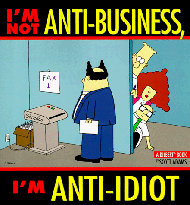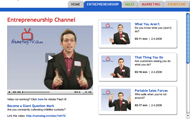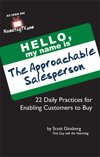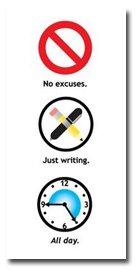 1. Allow everything to mentor you. Everyone you meet. Everything you do. Everywhere you go. Find a way to learn from them. Mentoring opportunities are endless. All you have to do is pay attention. Who (or what) teaches you?
1. Allow everything to mentor you. Everyone you meet. Everything you do. Everywhere you go. Find a way to learn from them. Mentoring opportunities are endless. All you have to do is pay attention. Who (or what) teaches you?
2. Become an expert at learning from your experiences. As my mentor says, “We learn not from our experiences but from intelligent reflection upon those experiences.” So, after you experience something – anything – be sure you’re taking adequate time to freeze and extract the lessons. What did you learn yesterday?
3. Catch yourself growing. Achieving a level of awareness where you can monitor your own growth. Maybe that means spying on yourself. Maybe that means journaling your progress. Maybe that means soliciting regular feedback from people you trust. Whatever practices you employ, remember that awareness is key. How have you grown the most this year?
4. Certifications are overrated. A Master degree doesn’t mean you’ve mastered anything. You want to master something? Try DOING it. You want to master something? Try READING five hundred books about it. You want to master something? Try INTERVIEWING people who’ve already done it. You want to master something? Try FAILING at it a few times first. You want to master something? Try PRACTICING it every single day. Do you really need to go back to school?
5. Crystallizing experience. Certain moments stand out. They change you forever. They take you to a place far, far away that you never quite return from. Your challenge is being able to look back – say, months or years later – and say, “Wow. So THAT’S why that happened to me…” What was your biggest wake-up call in the past five years?
6. Everything is a plus. The more cool/unique experiences you have … The more cool/unique people you meet … The more cool/unique things you see, watch, hear, read, taste … The more cool/unique places you go … the more cool/unique you will become. In the words of Glen Phillips, “There is nothing that doesn’t matter. Every word is a seed that scatters. Everything matters.” How many seeds did you scatter this month?
7. I’m so stupid that I’ve become a genius. The more frequently you admit your ignorance, the smarter you will become. In the words of Warren Buffet, “If we have a strength, it is in recognizing when we are operating well within our circle of competence and when we are approaching the perimeter.” What are you willing to admit you don’t know?
8. No mistakes, only lessons. How long something stays a mistake depends on how quickly you begin to learn from it. There are no mistakes. Show me a mistake you made and I’ll show you TEN lessons you could learn form that mistake, thereby eliminating it as a mistake. Are you screwing up enough?
9. Pay Attention. Simple as that. It makes your world grow bigger. It enables you see wider and fuller each day. Are you more concerned with the song the bird is singing or what type of bird is singing the song?
10. Remember that every experience is a qualification. Use everything to your advantage. The more you’ve done, the more you can do. After all, the word “expert” comes from the Latin experiri, which means, “experience.” Have you left the house today?
11. Study the anatomy of other people’s talent. Then, find out what makes those people successful. Find out what the commonalities are. And then ask: How many of those commonalities do YOU possess?
LET ME ASK YA THIS…
What are you doing today to become brilliant?
LET ME SUGGEST THIS…
For the list called, “7 Ways to Out Attract the Competition,” send an email to me, and I’ll send you the list for free!
* * * *
Scott Ginsberg
That Guy with the Nametag
Author, Speaker, Coach, Entrepreneur
[email protected]
 Ready to make 2009 the best year EVER?
Ready to make 2009 the best year EVER?
Cool! Perhaps my coaching program could be your New Year’s Resolution.
Rent Scott’s Brain today!

 Idiots are invaluable.
Idiots are invaluable.
 Holiday Season also means Networking Season.
Holiday Season also means Networking Season.
 “When passion is involved, the rules change.”
“When passion is involved, the rules change.”
 The other day, one of my coaching clients emailed me an article from Reader’s Digest called, “What If You
The other day, one of my coaching clients emailed me an article from Reader’s Digest called, “What If You  Halfway through the movie The Peaceful Warrior, Nick Nolte’s character, Socrates, makes a profound point about practicing:
Halfway through the movie The Peaceful Warrior, Nick Nolte’s character, Socrates, makes a profound point about practicing:
 So, I like to bite my dog.
So, I like to bite my dog.
 Awareness is the first step toward mastery.
Awareness is the first step toward mastery. My yoga teacher made a powerful comment in class yesterday.
My yoga teacher made a powerful comment in class yesterday. At a recent writing workshop, we got on the topic of excuses.
At a recent writing workshop, we got on the topic of excuses.  No time to write?
No time to write?